Weekly Recap: ARM-powered Windows 10 laptops, Intel Optane SSD, Chrome-blocked ads, Facebook Spaces and Apple System 6
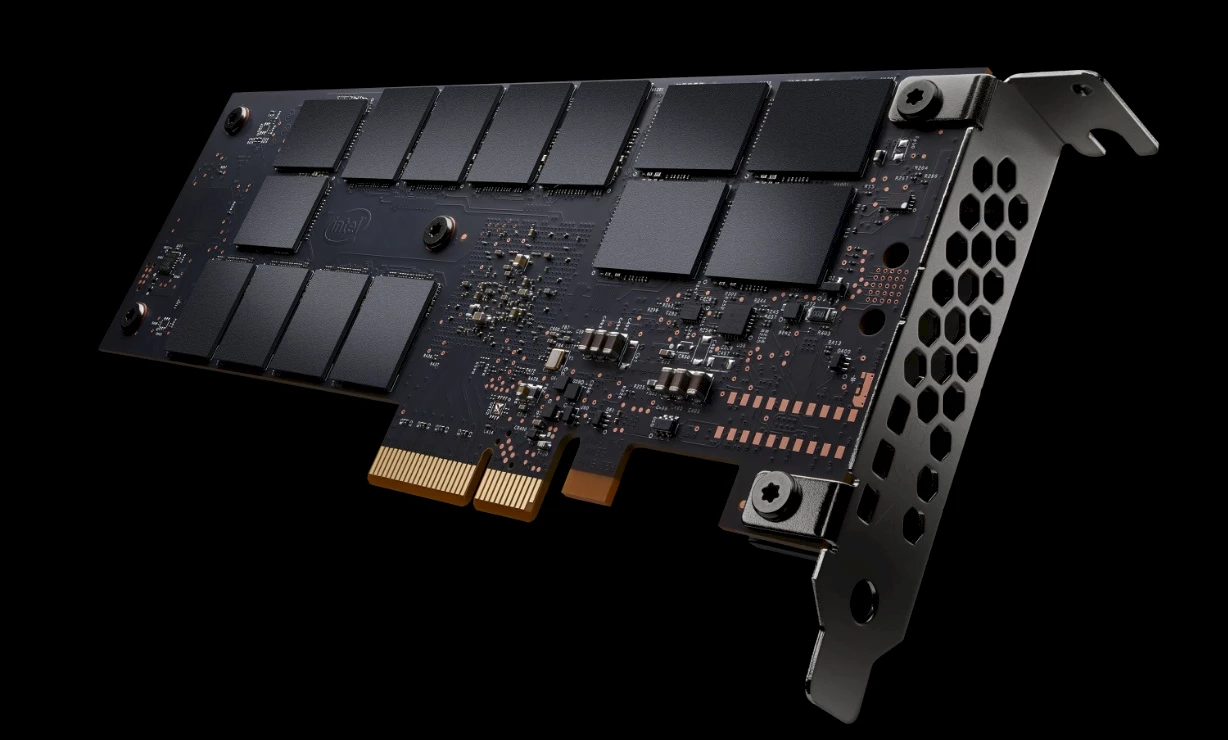
ARM-powered Windows 10 laptops at the end of the year
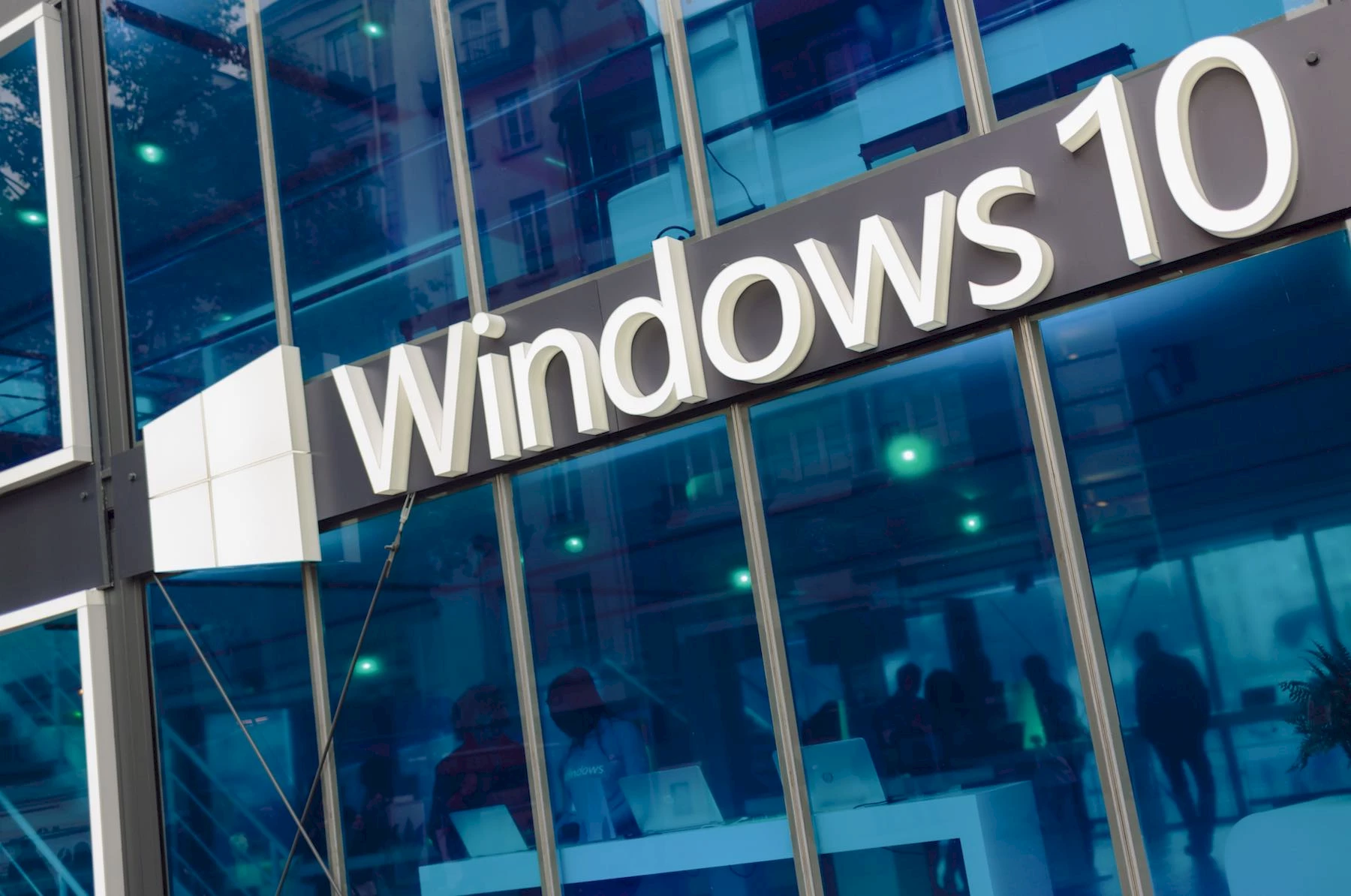
Facade of pavilion promoting Windows 10. Paris, France. © iStock / Getty.
Microsoft first announced its plans to bring Windows desktop apps to mobile ARM processors last year. The software giant is planning to allow partners to build laptop devices first, with a version of Windows 10 that will support ARM chips directly by including an emulator in the operating system. Devices will be able to run traditional desktop applications like Chrome or Photoshop, and they’ll be based on Qualcomm’s Snapdragon 835 chipset. While many were hoping we would start to see ARM-powered Windows laptops soon, Qualcomm has revealed they won’t arrive until the end of the year. Microsoft has not yet announced which PC partners will be building ARM laptops, but The Verge understands that Lenovo is currently testing its own machine.
⇨ The Verge, “Microsoft’s ARM-powered laptops won't arrive until Q4.”
Intel Optane SSD
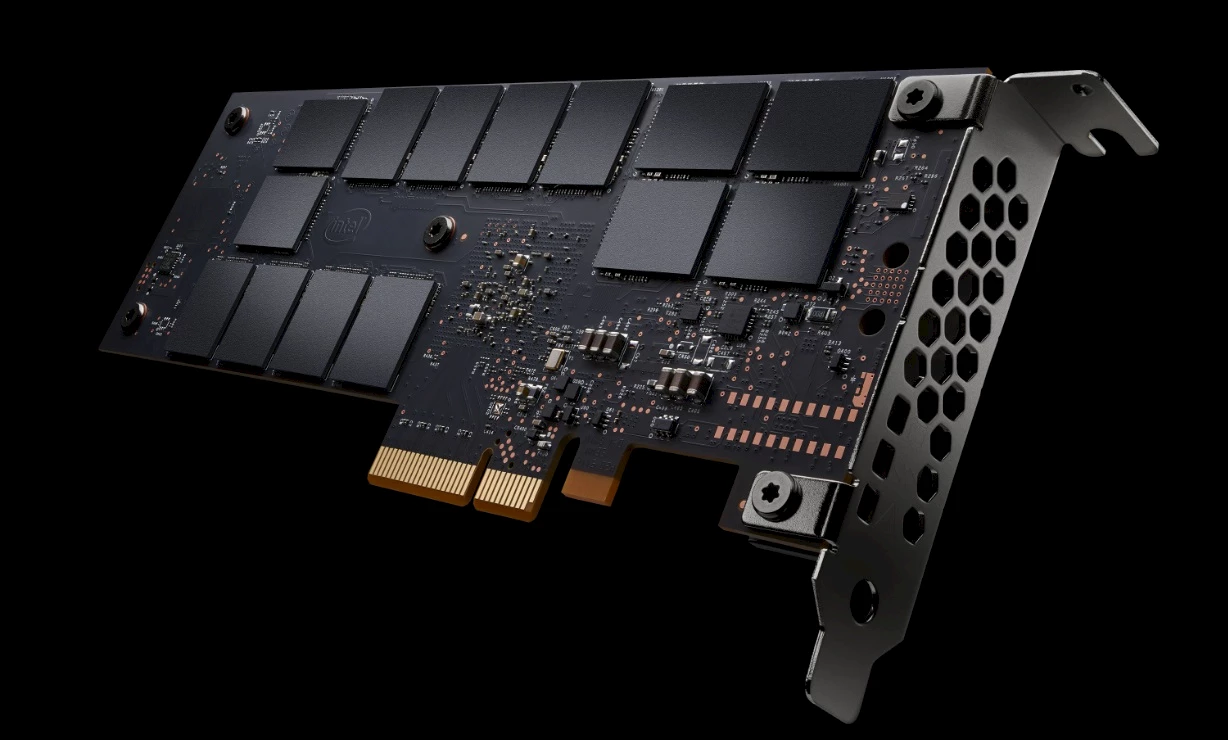
Optane SSD DC P4800X. © Intel.
Intel and Micron Technology have been working together since 2012 on a new non-volatile memory technology, called 3D XPoint, claimed to outperform the flash NAND technology used in all current SSDs. Intel is about to launch its first product with this new technology. The launch was originally slated for the end of 2016, but was postponed for unspecified reasons. The Intel Optane SSD DC P4800X is a PCIe card that holds 375GB of memory. It will sell for US$1,520 (CA$2,050), or US$4,05 per GB, which is far more than a traditional SSD. However, as always, the price is bound to drop, and preliminary tests seem to confirm touted performance, which is impressively superior to that of the flash NAND memory. It’s also the first iteration of the SSD with 3D XPoint memory; further improvements are bound to come.
⇨ AnandTech, “The Intel Optane SSD DC P4800X (375GB) Review: Testing 3D XPoint Performance.”
Chrome-blocked ads?

Mountain View. © iStock / Getty.
Google is gearing up to implement an ad-blocking feature in its Chrome browser, which corners nearly half of the browser market. Of course, it would not block out all ads, and especially not Google’s Adwords ads. In fact, the only ads that would be blocked are the ones deemed by Google as offering a “bad” user experience. Google is presumably basing its definition of “bad” on that of the Coalition for Better Ads, of which Google is a member. Observers believe that this is a defensive move by Google to quell the uptake of across-the-board ad blockers by users frustrated with intrusive ads, including Adwords ads. After all, Google derives the lion’s share of its income from ads.
⇨ The Wall Street Journal, “Google plans ad-blocking feature in popular Chrome browser.”
Facebook Spaces

Facebook Spaces. © Facebook.
Facebook wants to connect the world, including in the virtual world. It launched the new Spaces application, currently in beta version on Facebook’s Oculus Rift, at its yearly F8 developer conference. The product lets users create a digital, 3-D (legless) avatar based on their Facebook profile photo, and interact with up to three friends around a virtual round table. The concept is not revolutionary, as other programs such as AltspaceVR already offer more sophisticated virtual hangout experiences. The application requires the purchase of the Rift headset as well as Touch controlers, for a total investment of over CA$800. Spaces is probably more of a public-relations exercise than a viable product for the foreseeable future.
⇨ Recode, “Facebook is rolling out a product so you can hang with friends in virtual reality.”
System 6, a time-travel experience
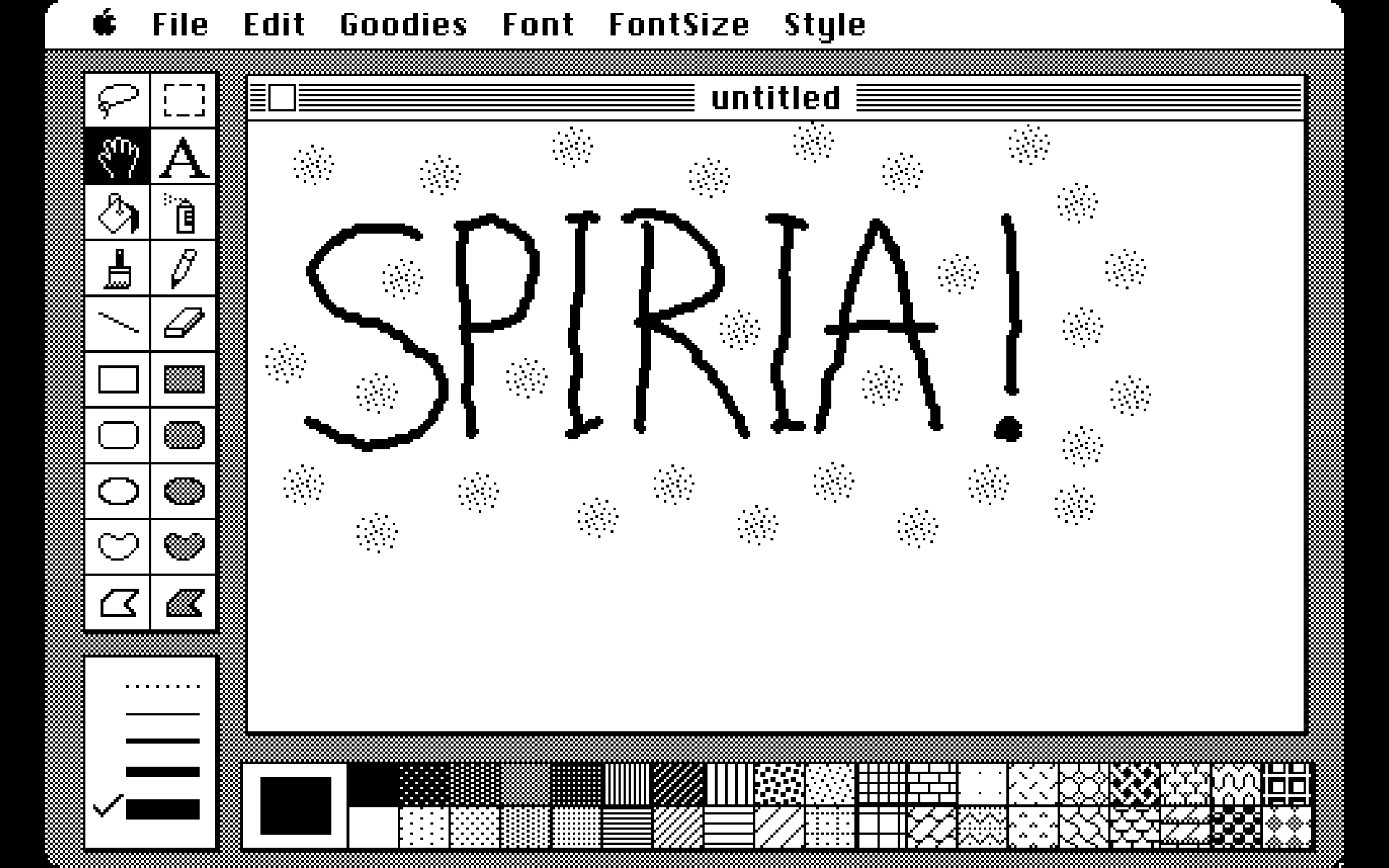
MacPaint (Version 1.5), April 1985.
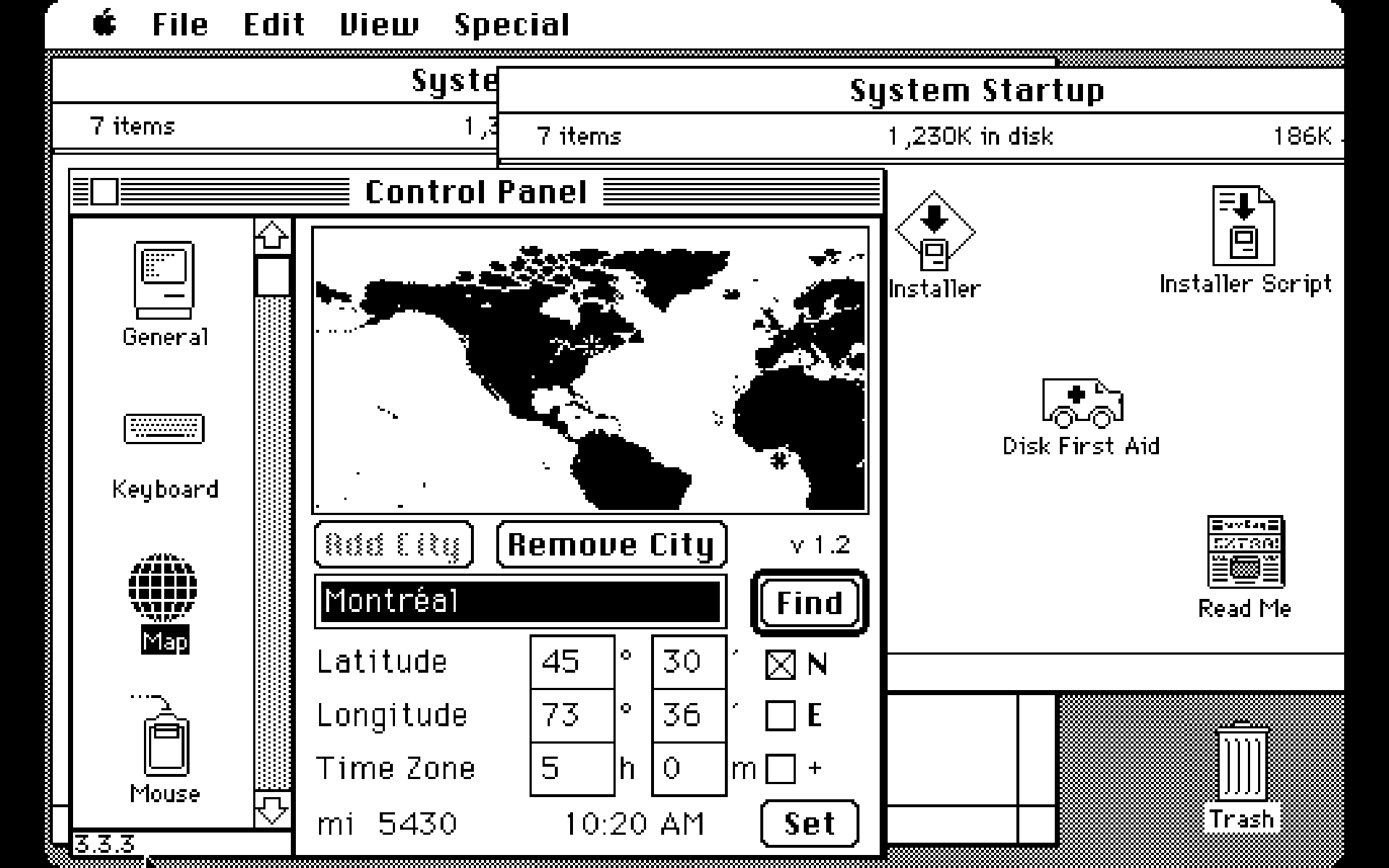
System 6, April 1988.
The Internet Archive Web site lets you play with emulations of old Macintosh operating systems: System 6, released in 1988, in the days of the Macintosh IIx, and System 7, released in 1991 along with the Quadra 700 and 900, the first Macs to run on the Motorola 68040 processor. But the best thing is that you don’t need to install any software: the emulation runs on any modern browser. Those of us who were around at the time will enjoy the walk down memory lane; the rest of us will get to discover a system that redefined microcomputing, and gain an appreciation of how far we’ve come. And if you have time to spare, Internet Archive also offers emulations of early Macintosh software: Microsoft Flight Simulator 1, Psion Chess, Dark Castle, Fokker Triplane Simulator, Space Invaders, Microsoft Basic, Shuffle Puck, etc.
⇨ Ars Technica, “Classic Mac OS and dozens of apps can now be run in a browser window.”
⇨ Internet Archive, “Software Library: Macintosh.”
